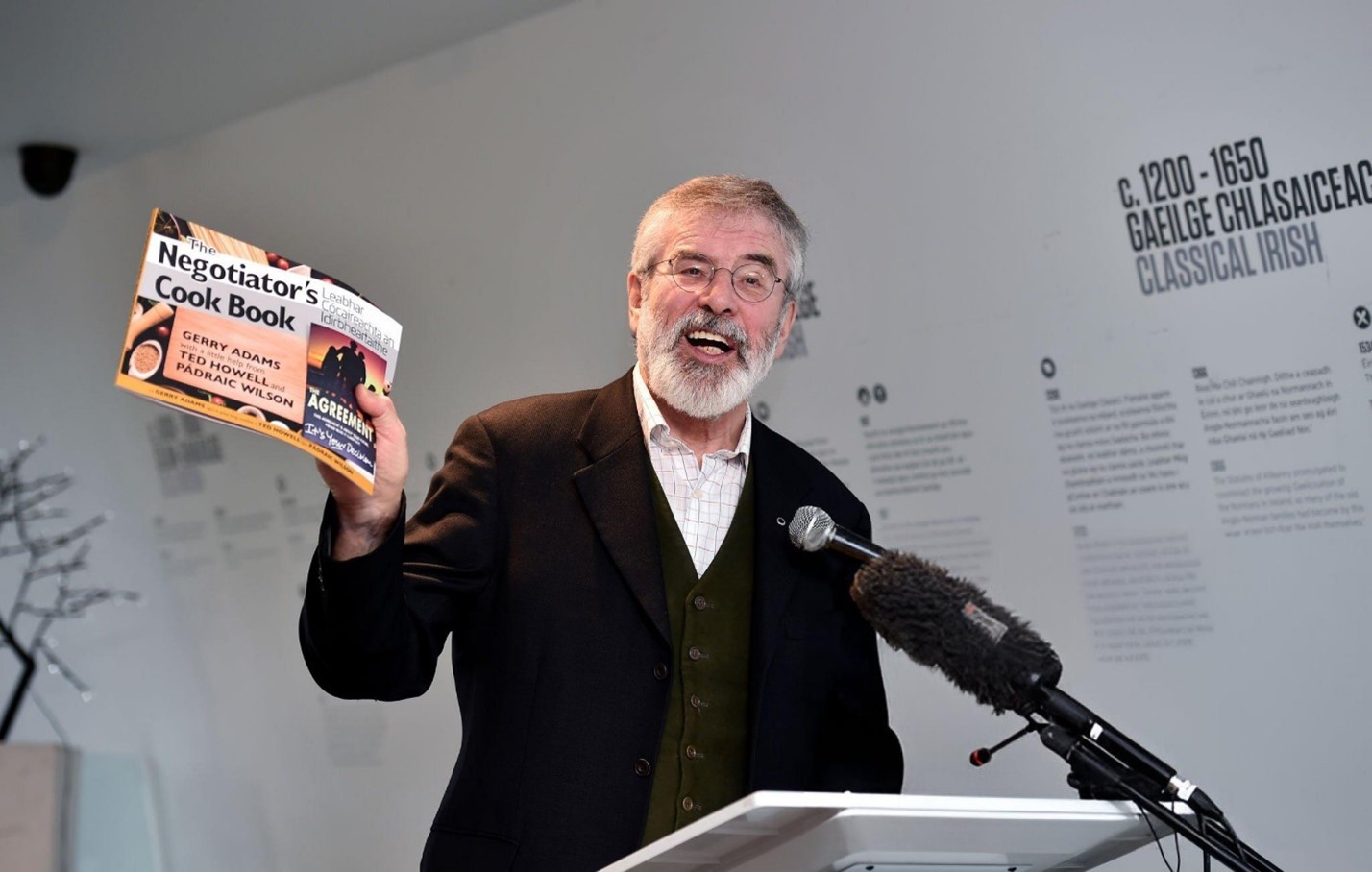Gerry Adams, the former leader of Sinn Féin and ex-MP, has told a Dublin High Court trial that he does not remember how many people were killed in notorious IRA atrocities such as Bloody Friday or the Claudy bombings. Adams is currently giving evidence in his defamation case against the BBC, which aired a Spotlight programme alleging his involvement in the death of Sinn Féin official Denis Donaldson.
The case centres on a claim made by the BBC that Adams had sanctioned the killing of Donaldson, who was shot dead in Donegal in 2006 after revealing he had been working as a police and MI5 informant for 20 years. While Adams denies any involvement in Donaldson’s death, the BBC’s investigation has led to a libel hearing, which has brought several of the darkest chapters of the Troubles into the courtroom.
On the fourth day of his testimony, Adams faced rigorous cross-examination by Paul Gallagher SC, counsel for the BBC. Gallagher questioned Adams about the scale of death and destruction during the Troubles and whether the IRA was responsible for it.
Adams responded that there had been approximately 3,500 deaths during the conflict, many of them resulting in injury or trauma. He personally highlighted the suffering of his own family, citing an incident where his brother-in-law was shot by the British Army. Adams further noted that he continues to face threats from dissident republicans.
Gallagher, referring to the book Lost Lives, which details the victims of the Troubles, pointed out that the IRA was responsible for nearly 1,800 deaths — approximately 48.5% of the total. Adams, though not disputing the figure, stated that this was a key motivation for his efforts to help bring about peace in Northern Ireland.
The focus then shifted to one of the IRA’s most infamous operations — Bloody Friday. On July 21, 1972, the IRA carried out a series of bombings across Belfast that killed nine people and injured more than 130 others. When Gallagher asked Adams how many were killed in the attack, Adams responded, “I do not remember,” despite the attack being one of the defining moments of the Troubles.
Gallagher pressed Adams, pointing out that as a leading figure within the republican movement, he must have been aware of such details. Adams maintained that it was “a disaster” and “terribly wrong,” but he refused to give a specific figure, stating that he had already answered the question. He further remarked that the IRA had apologised for the attack, both at the time and again three decades later.
The trial then moved on to the 1972 Claudy bombings, another deadly IRA atrocity in which three car bombs exploded, killing nine people. Adams admitted that the event was “another disaster” and “a wrong action” but said he did not remember the exact number of deaths.
Throughout the questioning, Adams became increasingly frustrated. When asked about his involvement in meetings between Sinn Féin and UK government representatives, Adams clarified that Sinn Féin’s role was not to negotiate on behalf of the IRA but rather to facilitate a ceasefire that could be brought back to the IRA leadership. He also remarked that he found the line of questioning concerning past IRA activities “trivial” in the context of the case, which centres on the death of Denis Donaldson.
Despite the intensity of the cross-examination, Adams maintained his stance that civilian deaths during the Troubles, particularly those caused by the IRA, were among his “biggest regrets” in life. When asked about the La Mon bombing of 1978, where 12 civilians were killed, Adams firmly stated, “It doesn’t matter who it was, it was wrong.”
The trial has delved deep into the complexities of Adams’s role in the peace process, Sinn Féin’s actions during the Troubles, and his continued relationship with the legacy of the IRA. Gallagher also raised the issue of the Irish government’s stance on the IRA, with Adams accusing successive Irish governments of failing to play a positive role in securing peace.
As the legal proceedings continue, Adams remains a divisive figure, both celebrated by some for his role in bringing about the Good Friday Agreement and criticised by others for his connection to the IRA. His testimony will be pivotal in determining whether the BBC’s accusations against him hold any merit.
The case, which is expected to run for several weeks, will resume on Tuesday, with further questions likely to probe Adams’s involvement in the broader events of the Troubles.







